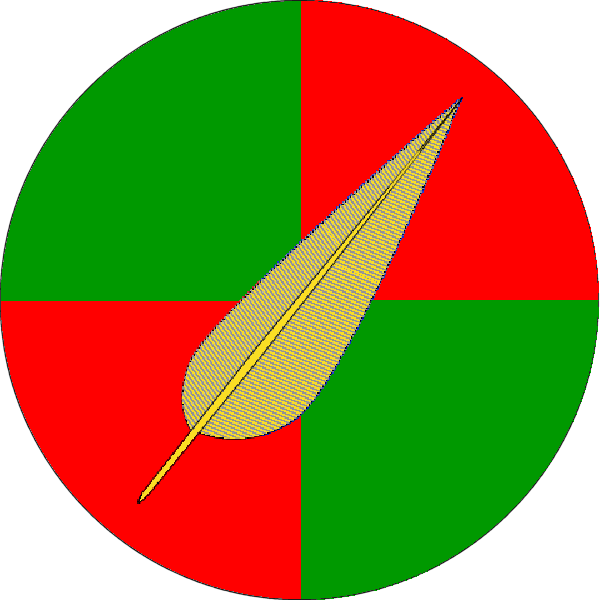Law:56RZ3 The Talossan Criminal Law Reform Bill: Difference between revisions
Jump to navigation
Jump to search
mNo edit summary |
mNo edit summary |
||
| Line 1: | Line 1: | ||
{{LawZiuStatus | {{LawZiuStatus | ||
|status= | |number=56RZ3 | ||
|status= Lex | |||
|sponsor=[[Miestrâ Schivâ]] | |sponsor=[[Miestrâ Schivâ]] | ||
|ziu= 56th | |ziu= 56th | ||
|clark= 2nd October 2021 | |clark= 2nd October {{year|2021}} | ||
|cosa= {{passed}} | |cosa= {{passed}} | ||
|cyes= 145 | |cyes= 145 | ||
|cno= 0 | |cno= 0 | ||
|cabs= 0 | |cabs= 0 | ||
|senats= {{passed}} | |senats= {{passed}} | ||
|syes= 7 | |syes= 7 | ||
|sno= 0 | |sno= 0 | ||
|sabs= 0 | |sabs= 0 | ||
}} | }} | ||
WHEREAS the Kingdom of Talossa was rocked to its foundations in February 2016 by the conviction and sentencing of a prominent Talossan for abhorrent crimes in the United States; | WHEREAS the Kingdom of Talossa was rocked to its foundations in February 2016 by the conviction and sentencing of a prominent Talossan for abhorrent crimes in the United States; | ||
| Line 33: | Line 25: | ||
AND WHEREAS in debate around bringing in this measure, it was thought necessary and proper to simultaneously introduce additional safeguards promoting the right to a fair trial and discouraging malicious prosecution for all serious crimes at Talossan law; | AND WHEREAS in debate around bringing in this measure, it was thought necessary and proper to simultaneously introduce additional safeguards promoting the right to a fair trial and discouraging malicious prosecution for all serious crimes at Talossan law; | ||
BE IT ENACTED by the King, Cosa and Senäts in Ziu assembled as follows: | '''BE IT ENACTED''' by the King, Cosa and Senäts in Ziu assembled as follows: | ||
1. Crime of Bringing Talossa into Disrepute | 1. Crime of Bringing Talossa into Disrepute | ||
| Line 39: | Line 31: | ||
A new section 7.2.10 shall be added to El Lexhatx Title A as follows: | A new section 7.2.10 shall be added to El Lexhatx Title A as follows: | ||
<blockquote>7.2.10. Bringing Talossa into disrepute. Any Talossan citizen who has been convicted by a credible foreign court, which has been deemed to abide by Talossan values, of a crime established at trial to have involved fraud, harassment, bribery, physical or sexual violence or threats thereof, has committed the crime of bringing Talossa into disrepute to the following degrees: | |||
:7.2.10.1. A felony if sentenced to penal servitude of more than 2 years. | |||
:7.2.10.2. A serious misdemeanour otherwise.</blockquote> | |||
7.2.10. Bringing Talossa into disrepute. Any Talossan citizen who has been convicted by a credible foreign court, which has been deemed to abide by Talossan values, of a crime established at trial to have involved fraud, harassment, bribery, physical or sexual violence or threats thereof, has committed the crime of bringing Talossa into disrepute to the following degrees: | |||
7.2.10.1. A felony if sentenced to penal servitude of more than 2 years. | |||
7.2.10.2. A serious misdemeanour otherwise. | |||
2. Reform of Prosecution Procedures and Introduction of Preliminary Hearing to Preserve Defendant Rights | 2. Reform of Prosecution Procedures and Introduction of Preliminary Hearing to Preserve Defendant Rights | ||
| Line 50: | Line 39: | ||
El Lexhatx Title G Section 6. shall be replaced in its entirety as follows: | El Lexhatx Title G Section 6. shall be replaced in its entirety as follows: | ||
<blockquote>6. Criminal Law: In the interest of providing the accused with the rights granted to them by the Ninth Covenant of Rights and Freedoms, the following rights shall be considered to be inalienable and shall be afforded to all citizens in civilian trials: | |||
:6.1. The Ministry of Justice, on behalf of the Crown, shall submit a charging instrument to the Clerk of the Cort identifying, in plain language, the charge to be brought against the accuse, and the factual allegations to be proven to support said charges. Nothing in this section shall limit the Ministry of Justice from relying on unpleaded allegations provided such does not prejudice the accused. | |||
:6.2. Upon receipt of the charging instrument, the Clerk of the Cort shall refer the matter to the appropriate tribunal of the Crown as defined by law. | |||
:6.3. The tribunal of the Crown shall test the sufficiency by making a prima facie determination that if the factual allegations contained therein were proven true beyond a reasonable doubt, then the accused would be guilty of the crime as alleged. Jeopardy shall only attach if the tribunal of the Crown accepts the charging instrument as sufficient. If the tribunal is not satisfied of such, then it shall reject the charging instrument as insufficient on its face and jeopardy shall not have attached. | |||
:6.4. The accused must be informed of the charges against him by the Crown within seven days of said charges being accepted by the Tribunal of the Crown. | |||
:6.5. Such notification must be submitted to the accused in writing, by either an electronic medium such as email, a typed letter, or by a handwritten letter. A copy of every such notice shall be archived in the Royal Archives by the Royal Archivist immediately after he receives a copy of said notice. If the notice is given in the form of a hand-written letter, the Royal Archivist shall make a copy of the letter in an electronic format, such that it may be added to the Royal Archives. | |||
:6.6. Preliminary Hearings | |||
::6.6.1. A preliminary examination is a hearing before a court for the purpose of determining if there is probable cause to believe a felony or a serious misdemeanour has been committed by the defendant. | |||
::6.6.2. The preliminary examination shall be commenced within 30 days after the receipt by a Cort of a charging instrument alleging a felony or serious misdemeanour, as described in El Lexhatx G.6.2. | |||
::6.6.3. A plea shall not be accepted in any case in which a preliminary examination is required until the defendant has been bound over following preliminary examination or waiver thereof. | |||
::6.6.4. The defendant, or their Public Defender, may cross-examine witnesses against the defendant, and may call witnesses on the defendant's own behalf who then are subject to cross-examination. | |||
::6.6.5. If the court finds probable cause to believe that a felony or serious misdemeanour has been committed by the defendant, it shall bind the defendant over for trial. | |||
::6.6.6. If the court finds that it is probable that only a misdemeanour has been committed by the defendant, it shall amend the complaint to conform to the evidence. The action shall then proceed as though it had originated as a misdemeanour action. | |||
::6.6.7. If the court does not find probable cause to believe that a crime has been committed by the defendant, it shall order the defendant discharged forthwith. | |||
:6.7. The Prosecution shall have up to 90 days from the time of notification of the accused in which to prepare its case for trial. If a case is not prepared by the Prosecution within the allotted time, then the matter shall be dismissed, unless the Prosecution can show that such delay is through the fault of the accused. | |||
:6.8. If a case is not prepared within the 90-day limit, then the Prosecution may request up to an additional 30 days to prepare its case, which shall be granted or denied by the tribunal assigned to the case. This section takes precedence over G.1.6. | |||
:6.9. The decision shall be based on the legitimacy of reasons given by the Prosecution in the interests of justice, equity, and efficiency. | |||
:6.10. If a matter is dismissed for failure to prosecute, then final jeopardy shall attach unless the Prosecution is able to provide new evidence against the accused with which to build a case. A new case must meet the same statute of limitations for any offence. | |||
:6.11. The Prosecution may withdraw a charging instrument upon good cause shown to which jeopardy shall not attach.</blockquote> | |||
{{ScribeAuth}} | |||

